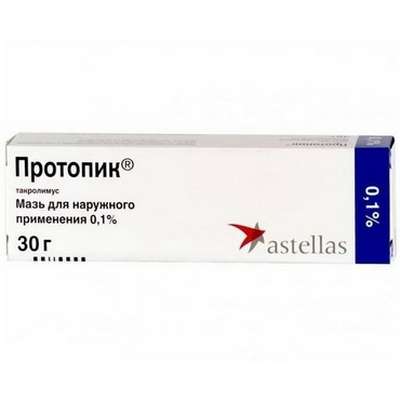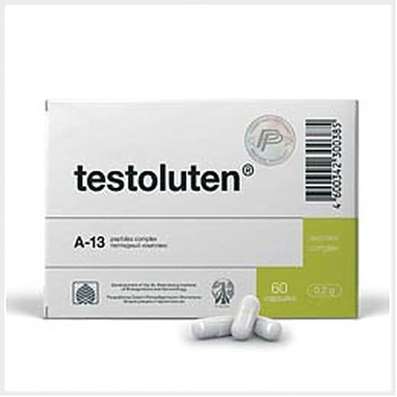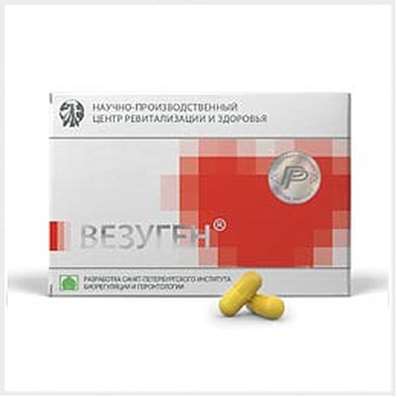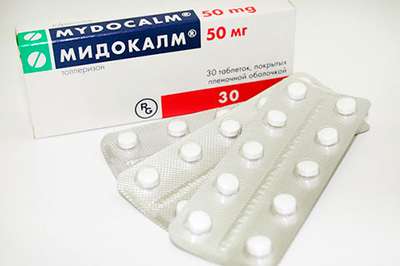Instruction for use: CardiASK
I want this, give me price
Dosage form: enteric-coated tablet
Active substance: Acidum acetylsalicylicum
ATX
B01AC06 Acetylsalicylic acid
Pharmacological groups
Non-steroidal anti-inflammatory drug (NSAID) [Antiaggregants]
Non-steroidal anti-inflammatory drug (NSAID) [NSAIDs - Salicylic acid derivatives]
Nosological classification (ICD-10)
G45 Transient transient cerebral ischemic attacks [attacks] and related syndromes: Ischemic neurological disorders; Acute cerebrovascular insufficiency; Repeated transient cerebral ischemia; Transient ischemic attack; Transient ischemic condition; Transient ischemic attack; Transient ischemic attack; transient ischemia; Transient cerebral ischemic attack; Transient cerebral ischemia; Transient ischemic attacks; Chronic cerebral ischemia; Drop attacks; Transient ischemic attacks; Transient ischemic cerebrovascular accident; Ischemic brain damage; Subclavian steal syndrome
I20 Angina [angina]: Heberden disease; Angina pectoris; The attack of angina pectoris; recurrent angina; Spontaneous angina; Stable angina pectoris; Angina rest; Angina progressing; Angina mixed; Angina spontaneous; stable angina; Chronic stable angina; Angina Syndrome X
I20.0 Unstable angina: heberden disease; Angina pectoris; The attack of angina pectoris; recurrent angina; Spontaneous angina; Stable angina pectoris; Angina rest; Angina progressing; Angina mixed; Angina spontaneous; stable angina; Chronic stable angina; Angina Syndrome X
I21 Acute myocardial infarction: Myocardial infarction in the acute phase; Acute Myocardial Infarction; Myocardial infarction with pathologic Q wave and without; Myocardial infarction complicated by cardiogenic shock; Infarction left ventricular; Transmural myocardial infarction; Myocardial infarction netransmuralny (subendocardial); Netransmuralny myocardial infarction; Subendocardial myocardial infarction; The acute phase of myocardial infarction; Acute myocardial infarction;Sub-acute phase of myocardial infarction; Subacute phase of myocardial infarction; Thrombosis of the coronary arteries (the arteries); Threatened myocardial infarction; Myocardial infarction without Q wave
I22 Subsequent myocardial infarction: Atherosclerosis and the likelihood of reinfarction; Myocardial infarction re; Relapses myocardial infarction
I26 Pulmonary embolism: Recurrent thromboembolism of the pulmonary artery; Recurrent pulmonary embolism; Thromboembolism of the branches of the pulmonary artery; Thromboembolism of the lungs; Thromboembolism of the pulmonary artery (PE); Thrombosis of the pulmonary artery; Thromboembolism; Thromboembolism of the pulmonary artery; Thromboembolism; Pulmonary embolism; Thromboembolism of the pulmonary artery and its branches; Thromboembolism of pulmonary vessels; Embolism of the lung; Embolism of the pulmonary artery; Acute massive thromboembolism of the pulmonary artery
I63 Cerebral infarction: ischemic Stroke; Ischemic brain disease; Ischemic stroke; Ischemic stroke and its consequences; Ischemic cerebral stroke; Ischemic cerebrovascular accident; Ischemic brain damage; Ischemic brain damage; ischemic conditions; Cerebral ischemia; Acute hypoxia brain; Acute cerebral ischemia; Acute ischemic cerebrovascular accident; Acute cerebral infarction; Acute ischemic stroke; Acute period of ischemic stroke; Focal cerebral ischemia; Ischemic stroke; recurrent stroke; The syndrome of Morgagni-Adams-Stokes; Chronic cerebral ischemia; cerebrovascular stroke; embolic stroke; Ischemic brain damage
I82 Embolism and thrombosis of other veins: Recurrent venous thrombosis; Postoperative thrombosis; Venous thrombosis; Acute venous thromboembolism; Recurrent vein thrombosis; Venous thrombosis; Thrombosis of veins of internal organs; Venous thrombosis; Deep vein thrombosis; Thrombosis of blood vessels; Vascular thrombosis; Thrombosis of veins; Deep vein thrombosis; Thromboembolic diseases; Thromboembolism of veins; Severe venous thrombosis; Embolism; Embolism of veins; Thromboembolic complications
Z100 * CLASS XXII Surgical practice: Abdominal surgery; adenomectomy; Amputation; Coronary angioplasty; Angioplasty of the carotid arteries; Antiseptic skin treatment for wounds; Antiseptic Hand; Appendectomy; atherectomy; Balloon coronary angioplasty; Vaginal hysterectomy; The coronary bypass; Interventions in the vagina and cervix; Interventions on the bladder; Intervention in the mouth; Restoration and reconstructive surgery; Hand hygiene of medical personnel; Gynecologic surgery; Gynecological intervention; Gynecological surgery; Hypovolemic shock during operations; Disinfection of purulent wounds; Disinfection of wounds edges; Diagnostic intervention; Diagnostic procedures; Cervical Diathermocoagulation; Long-surgery; Replacing the fistula catheters; Infection in orthopedic surgery; Artificial heart valve; cystectomy; Short-term outpatient surgery; Short-term operation; Short surgical procedures; Krikotireotomiya; Blood loss during surgery; Bleeding during surgery and in the postoperative period; Kuldotsentez; laser photocoagulation; laser coagulation; retinal laser coagulation; Laparoscopy; Laparoscopy in Gynecology; CSF fistula; Small gynecological operations; Small surgical procedures; Mastectomy and subsequent plastic; mediastinotomy; Microsurgical operations on the ear; Mukogingivalnye operation; suturing; Minor surgery; neurosurgical operation; Immobilization of the eyeball in ophthalmic surgery; testectomy; pancreatectomy; Perikardektomiya; The period of rehabilitation after surgery; The period of convalescence after surgery; Percutaneous transluminal coronary angioplasty; Pleural thoracentesis; Pneumonia postoperative and posttraumatic; Preparation for surgical procedures; Preparation for surgery; Preparation of the surgeon's hands before surgery; Preparation of the colon for surgical procedures; Postoperative aspiration pneumonia in neurosurgical and thoracic surgery; Postoperative nausea; Postoperative bleeding; postoperative granuloma; postoperative shock; The early postoperative period; myocardial revascularization; Radiectomy; gastric Resection; bowel resection; uterine Resection; liver Resection; enterectomy; Resection of part of the stomach; Reocclusion of the operated vessel; Bonding tissues during surgical procedures; Removal of sutures; Condition after eye surgery; Condition after surgery; Condition after surgery in the nasal cavity; Condition after gastrectomy; Status after resection of the small intestine; Condition after tonsillectomy; Condition after removal of the duodenum; Condition after phlebectomy; Vascular surgery; Splenectomy; Sterilization of surgical instruments; Sterilization of surgical instruments; sternotomy; Dental surgery; Dental intervention in periodontal tissues; strumectomy; Tonsillectomy; Thoracic surgery; Thoracic surgery; total gastrectomy; Transdermal intravascular coronary angioplasty; Transurethral resection; Turbinektomiya; Removal of a tooth; cataract surgery; Removal of cysts; tonsillectomy; Removal of fibroids; Removing the mobile primary teeth; Removing polyps; Removing broken tooth; Removal of the uterus body; Removal of sutures; Fistula likvoroprovodyaschih ways; Frontoetmoidogaymorotomiya; Surgical infection; Surgical treatment of chronic limb ulcers; Surgery; The surgery in the anal area; The surgery on the colon; Surgical practice; The surgical procedure; Surgical interventions; Surgery on the gastrointestinal tract; Surgical procedures on the urinary tract; Surgical procedures on the urinary system; Surgical intervention of the genitourinary system; Surgical procedures on the heart; Surgical manipulation; surgery; Surgery on the veins; Surgical intervention; Vascular surgery; Surgical treatment of thrombosis; Surgery; cholecystectomy; Partial gastric resection; hysterectomy; Percutaneous transluminal coronary angioplasty; Percutaneous transluminal angioplasty; Coronary artery bypass; tooth Extirpation; Extirpation of milk teeth; pulpectomy; pulsative cardiopulmonary bypass; tooth Extraction; teeth Extraction; cataract extraction; Electrocoagulation; endourological intervention; episiotomy; Etmoidotomiya; Complications after tooth extraction
Z95.1 Presence of aortocoronary shunt transplant: Coronary artery bypass grafting; Aortocoronary bypass with venous shunt
Z95.5 Presence of coronary angioplasty implant and graft: Coronary artery bypass grafting; Arteriovenous shunting; Thrombosis of arteriovenous shunt
Structure and Composition
active substance: Acetylsalicylic acid - 50 mg, 100 mg
Auxiliary substances: stearic acid; corn starch; Lactose monohydrate (milk sugar); Castor oil hydrogenated; Povidone (Plasdon K90 or Kollidon 90F); Polysorbate (Tween 80); MCC
Membrane film: methacrylic acid and ethyl acrylate copolymer 1: 1 (colliquite MAE 100P); Macrogol and polyvinyl alcohol copolymer (colliquut IR); Copovidone (plastidone S630); Triethyl citrate; talc; Titanium dioxide
Pharmachologic effect
Mode of action - antiaggregatory.
Dosing and Administration
Inside, before meals, drinking down with plenty of liquid, once a day. CardiASK® is intended for long-term use. The duration of therapy is determined by the attending physician.
Primary prevention of acute myocardial infarction in the presence of risk factors: 50-100 mg / day.
Prevention of repeated myocardial infarction, stable and unstable angina: 50-100 mg / day.
Unstable angina (with suspected development of acute myocardial infarction): 50-100 mg / day.
Prophylaxis of ischemic stroke and transient impairment of cerebral circulation: 50-100 mg / day.
Preventive maintenance of a thromboembolism after operations and invasive interventions on vessels: 50-100 mg / sut.
Prevention of deep vein thrombosis and thromboembolism of the pulmonary artery and its branches: 50-100 mg / day.
Release Form
Tablets, film-coated enteric-coated, 50 mg and 100 mg. In the outline of the cell packaging of PVC film and foil of aluminum printed varnished for 10 or 30 pcs. 1, 2, 3 contour squares in a pack of cardboard.
Manufacturer
CJSC "Canonfarma Production". 141100, Shchelkovo, Moscow Region, ul. Zarechnaya, 105.
Conditions of supply of pharmacies
Without recipe.
Storage conditions of the drug CardiASK
In dry, the dark place at a temperature of no higher than 25 ° C.
Keep out of the reach of children.
The shelf life of the drug CardiASK
2 years.
Do not use beyond the expiration date printed on the package.

 Cart
Cart





